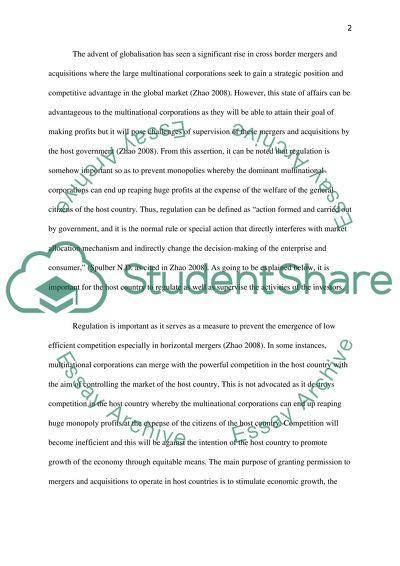Cite this document
(“Mergers and acquisitions Coursework Example | Topics and Well Written Essays - 2500 words”, n.d.)
Retrieved de https://studentshare.org/finance-accounting/1410326-mergers-and-acquisitions
Retrieved de https://studentshare.org/finance-accounting/1410326-mergers-and-acquisitions
(Mergers and Acquisitions Coursework Example | Topics and Well Written Essays - 2500 Words)
https://studentshare.org/finance-accounting/1410326-mergers-and-acquisitions.
https://studentshare.org/finance-accounting/1410326-mergers-and-acquisitions.
“Mergers and Acquisitions Coursework Example | Topics and Well Written Essays - 2500 Words”, n.d. https://studentshare.org/finance-accounting/1410326-mergers-and-acquisitions.


